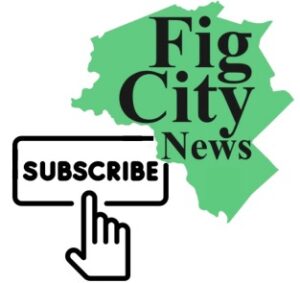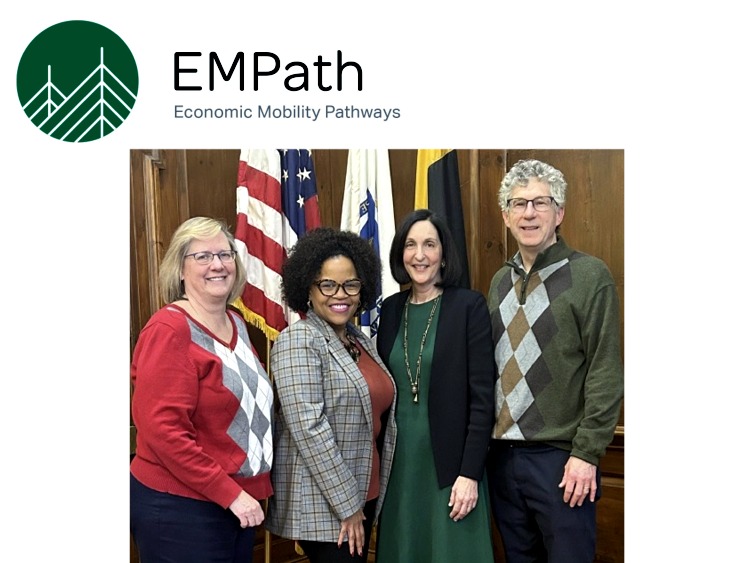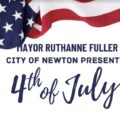Mayor Ruthanne Fuller announced last week that the City will use $1.75 million of American Rescue Plan Act (ARPA) funds for coaching services provided by Economic Mobility Pathways (EMPath) to assist 50 under-resourced families that have been disproportionately impacted by the pandemic. From three submissions for delivering these services, EMPath’s proposal was selected unanimously by a ten-person Advisory Committee of residents, issue experts, people with relevant lived experience, and City staff.
Marva Serotkin — a member of the Advisory Committee and the Newton Housing Partnership — said, “The Covid-19 pandemic exposed and amplified barriers to attain economic stability and mobility for under-resourced residents of Newton. The Economic Stability/Mobility Initiative announced by Mayor Fuller acknowledges these barriers and implements an innovative and targeted program to help residents move out of poverty. The City has selected to partner with EMPath, a national leader in economic mobility, on this initiative. With this program, Newton sends a message of hope for those whose needs are urgent.”
EMPath President and CEO Kim Janey said, “We thank the City of Newton for instilling their trust in EMPath to lead this critical initiative for the families of Newton. Our coaching model has seen tremendous success in supporting families as they work towards economic stability and has been adapted globally through the member organizations of our learning network. We hope it will continue to make the same kind of life-changing impact for Newton families.”
EMPath will recruit 50 families in Newton and provide each with economic mobility coaching and a stipend of $250 per month for the two years of the project. Since 2009, EMPath’s 1:1 coaching methodology has been developed to deliver:
- Sound advice from a trusted mentor;
- Support for setting and achieving goals for health, career, family wellness, financial stability, and education; and
- Recognition for success.
The priority population for EMPath’s Newton project is low-income Newton families who earn at or below 50% of the area median income (AMI), have children under 18 years old (or are pregnant), and who are interested in working and increasing their income. The project will particularly seek out those who are homeless, at risk of homelessness, living in subsidized housing, or otherwise struggling.
According to EMPath’s proposal, the two-year program in Newton will start with three months of planning, hiring, and training of staff, followed by a six-to-nine month ramp-up of recruiting participants and delivering services in the first year and full operation throughout the second year. After the program, participants will have the opportunity for longer-term support by enrolling in EMPath’s flagship program, Career Family Opportunity, which continues for up to five years.
EMPath expects that by the end of the two-year program in Newton, 80% of the families will have built savings, 90% will be employed or in school, and average participant income will increase by $8,000. In past projects, EMPath has documented improvements in economic self-sufficiency, a 72% rate of participants’ goal achievement, average increases in income of 47.5% before the pandemic, and over 40% increasing income by more than 10% during the pandemic. EMPath recently started working with the Boston Housing Authority to provide similar services to over 250 families in Boston.
Some City Councilors have questions or concerns about the City’s Economic Stability/Mobility Initiative and partnership with EMPath. Councilors Laredo, Norton, Malakie, Baker, Gentile, Krintzman, Wright, Oliver, and Grossman have docketed an item requesting a discussion with the Mayor’s Administration about the project, including questions such as:
- The amount of ARPA funds being used for the program
- How much of this money will be paid to EMPath
- Whether EMPath is contributing any of its own funds to this program
- Additional City resources that will be used, directly or indirectly, for this program
- Expectations for this program beyond the initial two-year period, and the source of any additional funds for the program
- Who in the city will be reviewing and evaluating the success of this program
City Councilor Tarik Lucas said, “On the surface of this ARPA expenditure, it appears only 17% of the funds will go into the hands of low-income families, who might be living beneath the poverty line. As someone who was born into a family that was living beneath the poverty line, this does not sit well with me. I look forward to discussing this money allocation amongst other things with the Fuller administration in the near future.”






